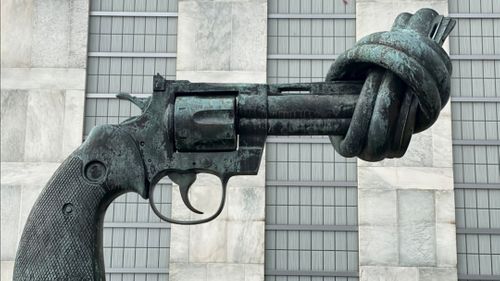District of Columbia v. Heller: The Paradox of Gun Control
Mar 14, 2024 · 2 mins read
0
Share

The world is a tricky stage, and Heller's Paradox is a stellar example. The more guns we hold to feel safe, the more unsafe we potentially become.
Save
Share
Take Washington D.C., it imposed a handgun ban to reduce crime in 1976. But did you know that after that, homicides nearly doubled?
Save
Share
It was 2008's District of Columbia v. Heller that challenged this ban. This landmark case argued self-defense as an individual right, leading to the ban being overturned.
Save
Share
This counterintuitive case is the heart of Heller's paradox. When self-defense widens to community level, disarmament can feel like losing one's safety shield. Yet at times, the shield itself provokes more danger.
Save
Share
Gun control isn't about taking away freedom or safety, but about minimizing risks. Like requiring seatbelts doesn't rob us of our freedom to drive.
Save
Share
In Japan, strict gun laws coexist with one of the lowest crime rates. Coincidence? Or correlation? It all depends on how we perceive safety.
Save
Share
Heller's Paradox calls for a rethink on what safety means. Is it about owning the means to neutralize threat? Or is it about reducing the chances of threat?
Save
Share
Understanding Heller's paradox helps us see past polarising debates. It's not about being pro or anti-gun, it's about being pro-safety, pro-life.
Save
Share
If we look at the broader picture, strict gun laws haven't always led to increased crime rates. Just as having more guns doesn't necessarily mean more safety.
Save
Share
At the end of the day, Heller's Paradox is a reminder that navigating complex issues requires nuanced thinking. No one-size-fits-all solution exists.
Save
Share
0